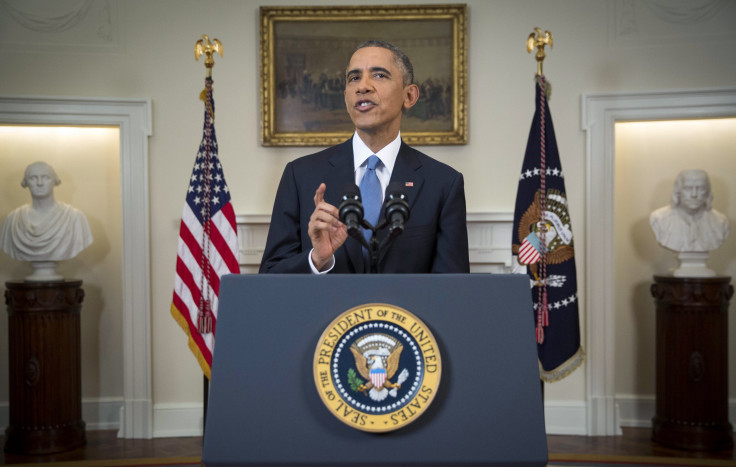
After many months of secret negotiations between President Obama and high level Cuban officials, the President announced the US Administration’s decision to restore full diplomatic relations in what’s being called an extremely “bold and brave move” to bring the most misguided and broken structure of American foreign policy. In addition, the State Department (through Secretary of State John Kerry) has decided to remove Cuba from the list of countries that sponsor terrorism, which they’ve been on since 1982. “These 50 years have shown isolation does not work,” Obama said. “It’s time for a new approach.” So what exactly does this overhaul mean? Here are 10 things to understand:
1. Diplomatic Relations: In very few words, the deal is that the US and Cuba will restore their Diplomatic relations, for which a US embassy will open in Havana, most likely in the next few months. (The date has not been confirmed.) “The re-establishment of embassies in both nations will facilitate high-level exchanges between the two governments in the months ahead,” said Obama, after which he confirmed that an assistant secretary will be assigned to Havana to lead an American delegation on talks regarding Cuban-American migration.
2. Traveling To Cuba: Although general tourism will not be permitted (as of yet), it will be much easier for Americans to apply under the 12 permitted existing categories: professional research, education, visiting family, official government business, journalism, education, religious purposes, public performances, support for the Cuban people, private foundation work, export activity and humanitarian projects.
3. Pope Francis’s Involvement: Reportedly, Pope Francis wrote numerous letters to both, US President Obama and Cuban President Raúl Castro, strongly encouraging them to overhaul relations between the two countries once, and for all. The Vatican was the only other government to directly participate in the discussions between the US and Cuba.
4. When and Where: After a reported year and a half of secret conversations and meetings between high level US and Cuban officials, which were mainly held in Canada, the deal was closed during a meeting in the Vatican this fall.
5. Fidel Castro: Administration officials have confirmed that Cuban President Raúl’s brother, was not involved in any of the negotiation discussions.
6. Political Prisoners: Cuba has agreed to release 53 Cuban prisoners identified as political prisoners by the United States government, and has released contractor Alan P. Gross, who was not technically part of the swap, but just released separately on “humanitarian grounds.” The US sent back three Cuban spies who had been in an American prison since 2001.
7. Cuban Embargo: Although lifting the embargo is most definitely one of the goals of this overhaul, Congressional approval is needed to do so and it will, most likely take a while.
8. Banking and Remittances: The US government will in fact be lifting some of the restrictions in American banks which work with their Cuban counterparts. For instance, American debit and credit cards will now work in Cuba, and remittances allowed to Cubans will go up per quarter from their current $500, to $2,000.
9. Cuban Cigars: Americans are able to bring back up to $400 in general goods from Cuba, including $100 and alcohol and tobacco products such as Cuban cigars, of course. None of the goods brought back can be for sale purposes.
10. Congress Division: Congress is deeply divided on the matter. Senate Majority Leader Harry Reid, D-Nev., said that while he remains concerned about human rights and political freedom inside Cuba, "I support moving forward toward a new path with Cuba." But Senator Bob Menendez said the president “vindicated the brutal behavior of the Cuban government” and Senator Marco Rubio (who is of Cuban descent himself) called the announcement “absurd” during an interview with Fox News. "It's absurd and it's part of a long record of coddling dictators and tyrants that this administration has established," Rubio explained.
© 2024 Latin Times. All rights reserved. Do not reproduce without permission.
